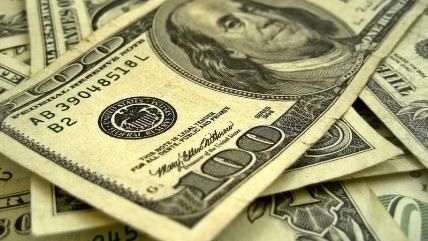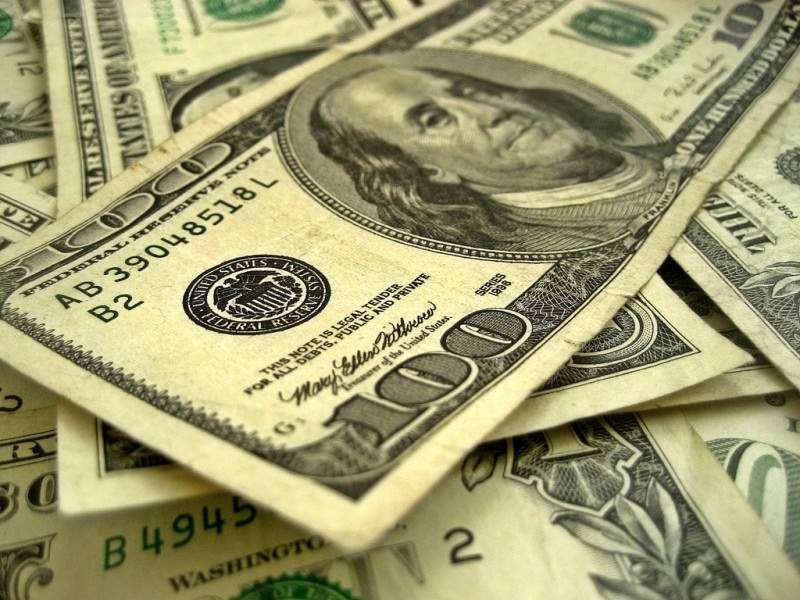Where's the Debate on Monetary Policy?
Republican candidates appear to be ignoring the topic.


The presidential race has reached the moment when the candidates are talking about issues.
Donald Trump has put out a plan to restrict immigration. Jeb Bush gave a big foreign policy speech, as did Marco Rubio. The governor of Wisconsin, Scott Walker, will talk on August 18 about his plan to repeal and replace ObamaCare. Hillary Clinton has tackled college costs and energy. On August 19, Bush and Walker are scheduled to appear in New Hampshire along with Chris Christie, Carly Fiorina, Bobby Jindal and John Kasich to talk about education.
The mysteriously missing topic? Monetary policy.
A critic of the Federal Reserve, Steve Lonegan of the group American Principles in Action, has organized a conference at Jackson Hole, Wyoming, on August 27 and 28 to coincide with the Fed's own annual symposium there. Lonegan tells me that he invited all of the presidential candidates to attend and has so far found no takers.
"There's something scaring them away," he tells me. "The Republican candidates are sucking their thumbs … for some reason they are afraid to address it. I don't understand it."
The right-of-center think tanks that often serve as the source of campaign ideas are certainly willing to participate. Speakers at the Jackson Hole Summit include Stephen Moore and Jim DeMint of the Heritage Foundation, Jared Meyer of the Manhattan Institute for Policy Research, and Mark Calabria of the Cato Institute. Even the centrist, establishment Council on Foreign Relations is sending Benn Steil, author of The Battle of Bretton Woods.
Lonegan, who was elected mayor of Bogata, N.J., for 12 years and was the New Jersey Republican Party's candidate in 2013 for the U.S. Senate, says he understands that the presidential candidates have tight schedules and are focused on the early primary states. He is the New Jersey state chairman of Sen. Ted Cruz's presidential campaign, and he notes that Cruz and Sen. Rand Paul have signed on as co-sponsors—they are the only two, at the moment—of Sen. Cornyn's Centennial Monetary Commission Act of 2015. That bill would establish a commission to examine the United States monetary policy, evaluate alternative monetary regimes, and recommend a course for monetary policy going forward. But the candidates could be doing more, he says: "I'm trying to teach them, but so far I can't say I'm making major headway."
Lonegan says he's all for cutting taxes and regulations. But there's a third leg of the economic policy tripod, which is sound money, either a gold standard or a rule-based monetary policy.
Why aren't the presidential candidates seizing the issue?
Lonegan talks about Paul Volcker's Fed as part of the key to Ronald Reagan's economic success. The double-digit inflation of the Carter years, though, was more obvious a problem than today's dollar distortions, which have included rising prices for homes, art, and shares of stock.
If the villain of Obama's Fed was Ben Bernanke, Republicans must reckon with the fact that Bernanke was appointed chairman by President George W. Bush. Lonegan allowed as how that might be a difficulty for Jeb Bush, but not necessarily for the other candidates.
Lonegan suggests that talking about the "failed policies of the Obama Fed" is a way for Republicans to respond to what Hillary Clinton and Bernard Sanders are saying about a widening income gap. The businessman who controls the Wall Street Journal and Fox News, Rupert Murdoch, and the former mayor of New York City, Michael Bloomberg, both recently sounded similar themes. Bloomberg asserted that the Fed's low interest rates have "exacerbated the wealth gap between the poor and the rich because the rich have assets. And that is what is being hiked here because of low interest rates, whether they own stocks or real estate or whatever the case may be." And Murdoch wrote on Twitter that "Fed trillions ended inflating existing assets. Stocks, real estate, art."
A New York Times editorial puzzles over home prices and asserts, "only investment income has been rising steadily in the recovery, while wages from work have stagnated." Much depends on whether the cost of employer-provided health insurance is included in wage income, but even so, and without mentioning the Fed, the Times editorialists sound a bit like Bloomberg and Murdoch.
Maybe the presidential candidates think this is an issue too complicated for ordinary voters to understand? By that theory, voters are supposed to be fascinated by the details of H1-B visas, Iran's nuclear centrifuges, elementary school student testing and teacher evaluation, hydraulic fracturing, and health insurance—but not at all interested in the value of a dollar. Could be. But in such a large field of candidates, you'd think there'd be at least one who would try talking about the issue at some length, if only to test the reaction. It might surprise.
Editor's Note: As of February 29, 2024, commenting privileges on reason.com posts are limited to Reason Plus subscribers. Past commenters are grandfathered in for a temporary period. Subscribe here to preserve your ability to comment. Your Reason Plus subscription also gives you an ad-free version of reason.com, along with full access to the digital edition and archives of Reason magazine. We request that comments be civil and on-topic. We do not moderate or assume any responsibility for comments, which are owned by the readers who post them. Comments do not represent the views of reason.com or Reason Foundation. We reserve the right to delete any comment and ban commenters for any reason at any time. Comments may only be edited within 5 minutes of posting. Report abuses.
Please to post comments


Anyone supporting a constitutionally restrained federal government would have to notice that the federal government is not granted the power to set prices. Since interest rates are the price of money the federal government does not have the power to set interest rates. So it certainly cannot delegate that power to a privately owned and independent bank, like the Federal Reserve . That of course brings up the constitutional status of the federal reserve and where it gets the power to print and circulate the countries currency . These are very serious matters. We are talking about a magic checkbook allowing the possessor to write notes for unlimited sums of money . Most decide that it is much too dangerous to mention.
Economics is the only "authority" granted the power to set prices.
God help those who think that others can. The world is littered with the remains of those who tried.
Start making cash right now... Get more time with your family by doing jobs that only require for you to have a computer and an internet access and you can have that at your home. Start bringing up to $8596 a month. I've started this job and I've never been happier and now I am sharing it with you, so you can try it too. You can check it out here...
http://www.incomereport.tk
And here I've always been told that the Fed was non-political. So, why on earth would a POTUS candidate want to discuss monetary policy over which s/he has no control?
The Fed considers the Federal Reserve System "an independent central bank because its monetary policy decisions do not have to be approved by the President or anyone else in the executive or legislative branches of government, it does not receive funding appropriated by the Congress, and the terms of the members of the Board of Governors span multiple presidential and congressional terms."[21]
The U.S. Government receives all the system's annual profits, after a statutory dividend of 6% on member banks' capital investment is paid, and an account surplus is maintained. In 2010, the Federal Reserve made a profit of $82 billion and transferred $79 billion to the U.S. Treasury.[22]
Monetary policy has no sex appeal, although it's probably the most important libertarian issue we face. We need to have some type of monetary agreement with other countries in order to balance trade deficits. A 9 trillion dollar deficit the past 15 years is not in our best interests. We are nothing but a service sector economy that consumes more than we produce.
Start working at home with Google! It's by-far the best job I've had. Last Wednesday I got a brand new BMW since getting a check for $6474 this - 4 weeks past. I began this 8-months ago and immediately was bringing home at least $77 per hour. I work through this link, go? to tech tab for work detail,,,,,,,
http://www.homejobs90.com
Start making cash right now... Get more time with your family by doing jobs that only require for you to have a computer and an internet access and you can have that at your home. Start bringing up to $8596 a month. I've started this job and I've never been happier and now I am sharing it with you, so you can try it too. You can check it out here...
http://www.jobnet10.com
Start working at home with Google! It's by-far the best job I've had. Last Wednesday I got a brand new BMW since getting a check for $6474 this - 4 weeks past. I began this 8-months ago and immediately was bringing home at least $77 per hour. I work through this link, go? to tech tab for work detail,,,,,,,
http://www.homejobs90.com
where
"the gold standard's total failure to achieve stable prices since the Industrial Age caused the demand for gold to far exceed the supply"
Lol wut?